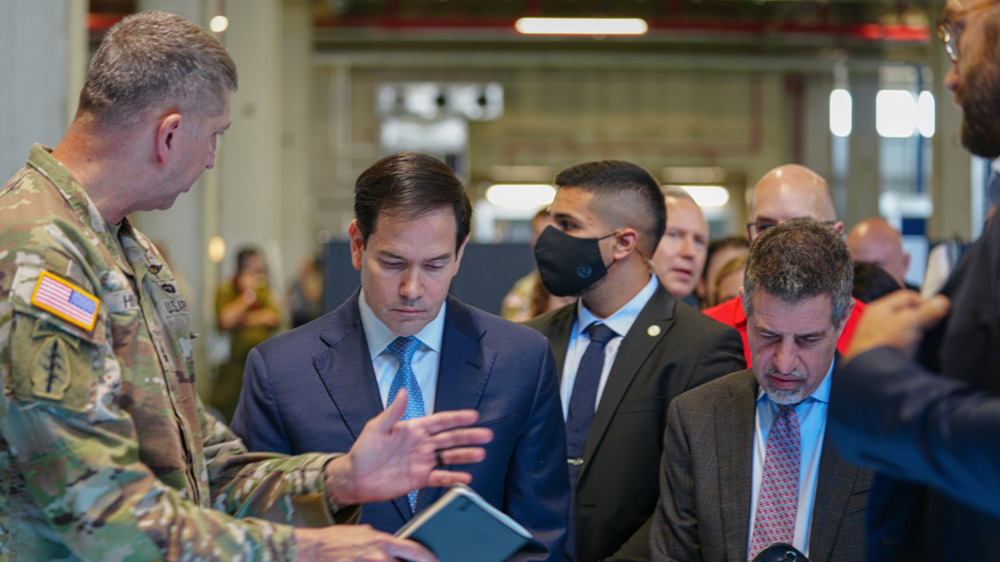Biden to press G7 allies to join US pressure against China: Adviser
US President Joe Biden plans to call on Washington’s Group of Seven (G7) allies to bring further pressure on China over the alleged use of forced labor in its northwestern Xinjiang province, a senior White House has said as the new US president resumes anti-Beijing policies in line with strategies pursued by his Republican predecessor.
"These are like-minded allies, and we want to take tangible and concrete actions that show our willingness to coordinate on non-market economies, such as China," Biden’s Deputy National Security Adviser Daleep Singh claimed on Saturday as quoted in a Reuters report.
"The galvanizing challenge for the G7 is to show that open societies, democratic societies still have the best chance of solving the biggest problems in our world, and that top-down autocracies are not the best path," added Singh, who also serves as deputy director of the National Economic Council and is helping to coordinate the next meeting of the G7 advanced economies, set to take place in Britain in June.
Biden, according to the White House official, will attend the upcoming summit in southwestern British territory of Cornwall, where he plans to focus on what he regards as “a strategic rivalry between democracies and autocratic states, particularly China” as well as “elevating shared democratic values within the G7.”
The meeting is also expected to address “health security, a synchronized economic response to the COVID-19 pandemic, concrete actions on climate change,” the report said.
Singh further noted that Washington had already taken strong measures against China over what he claimed as “human rights abuses in Xinjiang,” insisting that the Biden administration would seek to expand the political scheme with its G7 allies.
He added that details were still being worked out ahead of the meeting, but underlined the summit presented an opportunity for US allies to show solidarity on the anti-China strategy.
"We've made our views clear that our consumers deserve to know when the goods they're importing are made with forced labor," Singh further claimed. "Our values need to be infused in our trading relationships."
Such claims by the senior White House official comes amid widespread reports that many US corporations have outsourced most of their manufacturing to impoverished or densely-populated countries across the globe – such as Bangladesh, India, Guatemala – for the very purpose of benefiting from very cheap or slave labor. Such oppressive practices by American companies continue unabated without any expressions of concerns by the US and its mostly Western European G7 allies.
Joint US-led sanctions against Chinese officials accused of abuses in the province were announced last month by Washington, the European Union, the UK and Canada.
China, meanwhile, has fiercely denied all Western accusations of abuse and has responded with its own punitive measures against the US and the EU.
Last week a senior Chinese diplomat denounced Washington’s policy against Beijing as “too negative" insisting that the Biden administration is more focused on confrontation rather than cooperation with China.
“Such an approach, I must say, is too negative,” he said, adding that it lacks “a forward-looking spirit,” said China’s Vice-Foreign Minister Le Yucheng during a wide-ranging interview with The Associated Press on April 16.
Le further suggested that instead of highlighting confrontation, the two sides could promote cooperation since Washington and Beijing are both combating COVID-19 and recovering their economy.
The top Chinese diplomat said the two countries could team up on coronavirus response but any cooperation must be on an equal basis, making an apparent reference to the US pressure on China on multiple fronts.
“It is not one side drawing up a laundry list of demands to the other side,” Le said. “In cooperation, one should not be selfish and care only about one’s own interests with no regard for the well-being of the other side.”
Washington and Beijing remain at odds over a range of issues, including alleged human rights abuses in the Xinjiang region, protests in Hong Kong, China’s territorial claims on Taiwan and most of the South China Sea as well as the COVID-19 origin.
China had hoped for an improvement in relations under Biden, who succeeded former hawkish president Donald Trump in January, but the new administration has demonstrated no sign of backing down on hardline policies against Beijing.
NYT reporter pitched ‘on your terms’ interview to Epstein
VIDEO | Paris activists denounce 'climate sabotage' ten years after agreement
VIDEO | Immigrants protest stricter immigration rules in Quebec
Blood plasma therapy in Iran
Maccabi Tel Aviv fans chant hate, make Nazi gestures during football match
Israeli airstrikes hit southern Lebanon amid ongoing ceasefire violations
VIDEO | Fourteen Palestinians, including kids, die in Gaza amid freezing temperatures
Putin’s visit to India reinforces Moscow-Delhi ties amid US sanctions, pressures












 This makes it easy to access the Press TV website
This makes it easy to access the Press TV website